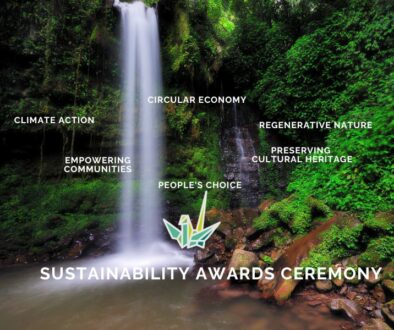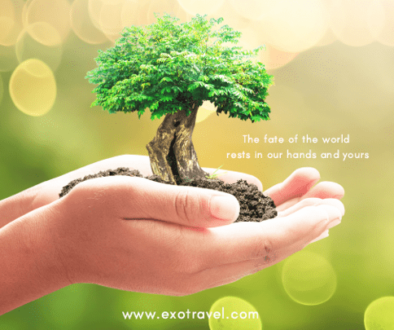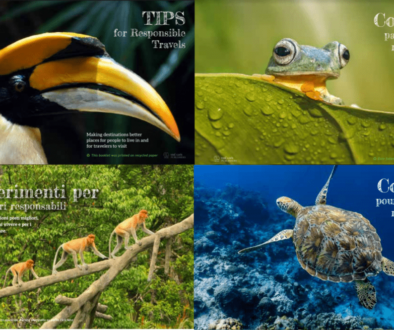EXO Voices on Responsible Tourism
 Reena Sandhu – Travel Consultant @ EXO Thailand
Reena Sandhu – Travel Consultant @ EXO Thailand
I think tourism and biodiversity are closely related. Lots of people travel each year to experience Natural beauty. The income generated by sustainable tourism can provide important support for nature conservation (Wildlife), as well as for economic development (raising income for small local communities).
The Tourism Authority of Thailand & DMC’S in Thailand are also helping to highlight the links between tourism , poverty alleviation and biodiversity. There’s a lot more that tourism can contribute in order to protect biodiversity by focusing on simple measures such as minimizing disturbance to wildlife and purchasing sustainable products from local communities. In terms of minimizing disturbance to wildlife, EXO Travel is no longer promoting elephant camps with riding like Mae Sa Elephant Camp, etc., but instead focusing on more sustainable camps like Maeklang Elephant Conservation Camp and Kanta Elephant Camp. As for purchasing products, we do buy welcome gifts for clients from local communities like Ban Na Ton Chan in Sukhothai, etc. This is our best contribution towards sustainable tourism.
 Harold De Martimprey – General Manager @EXO Cambodia
Harold De Martimprey – General Manager @EXO Cambodia
Cambodian Team welcomes on board a new General Manager, they could not resist to ask him few questions about sustainability. Why tourism industry should care about sustainable aspects?
There are many reasons why not just the tourism industry but anyone really should care about sustainable aspects and the first one being that we only have one planet… to date! We can’t keep turning our back on pollution simply because we can’t see what’s on the other side.
The tourism industry can be part of being the problem. We were at 1.18 billion international tourists in 2015 and we expect 1.8 billion by 2030. It is crucial to be able to manage the impact on local population and protect all that we love about our destinations. More development means more water treatment, more waste management, more people visiting sometime fragile ecosystems. We want to minimize all the negative aspects by looking at how we do things and encouraging our partners to do so as well as maximizing positive aspects by supporting local initiatives. “Until such time as you will want us to send you to a plastic and toxic debris made artificial island swept in torrential wind, littered by dead wildlife whilst eating contaminated fish – we’ll keep fighting.”
How DMCs could have a role into Responsible Tourism?
Before looking at others, we need to look at ourselves. How do we operate? Do we recycle, use plastic, over use air con, can we travel more overland rather than fly? However, the most efficient tool as a DMC is the choice of our destinations and partners. By promoting and communicating sustainable practices of our preferred hotels and restaurants this encourages travelers to make the right choice while encouraging other hotels to develop green practices. By choosing well run wildlife places rather than tiger temples or controversial elephant riding, by including in your program places which gives back to the local people and promote their culture and of course reducing drastically the use of plastic and carbon footprint.



